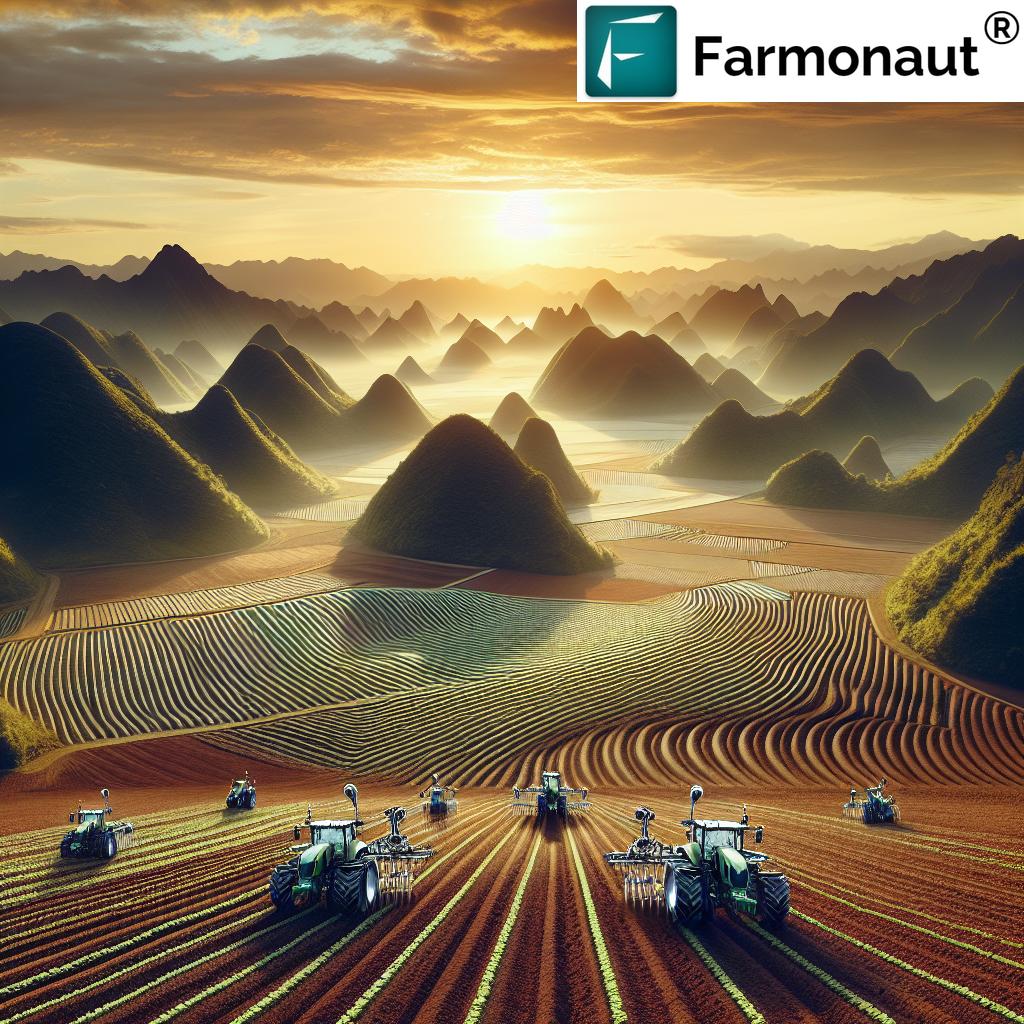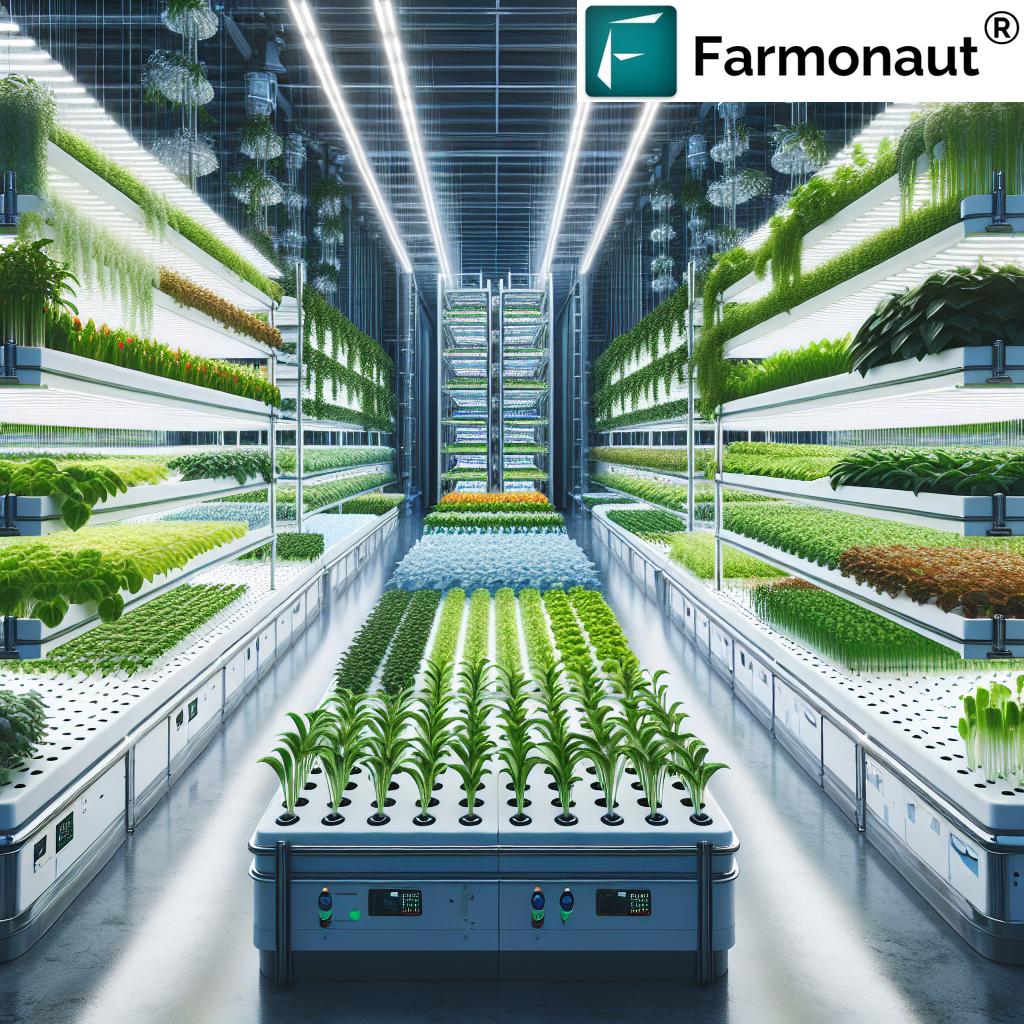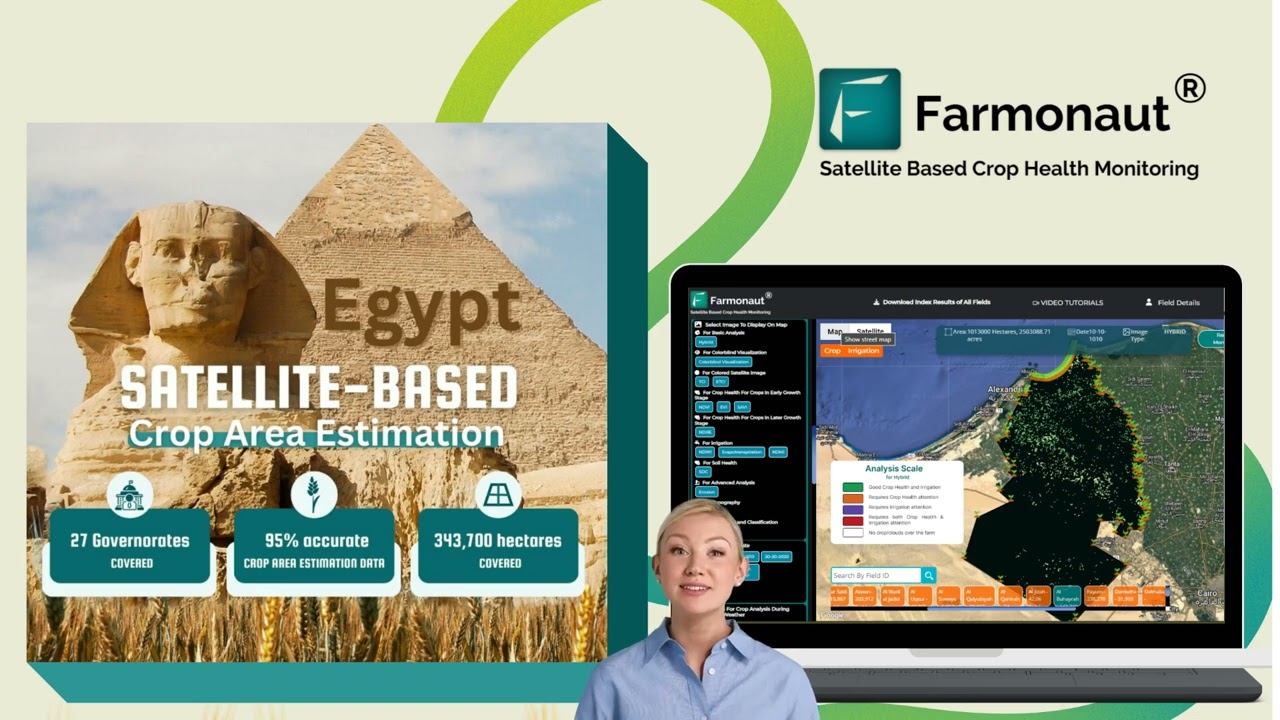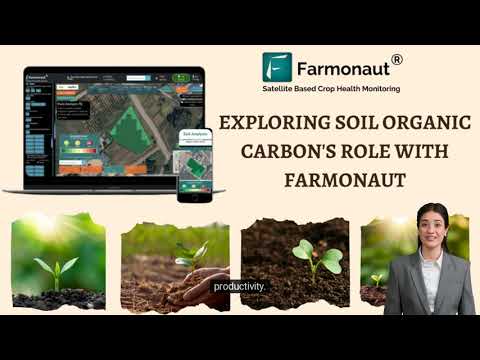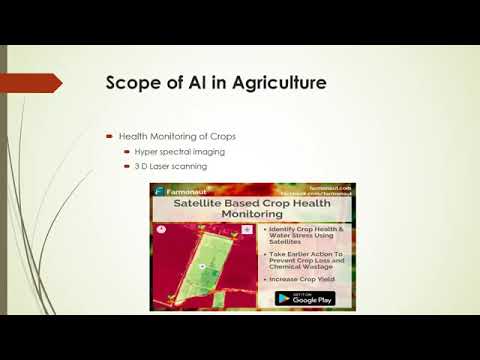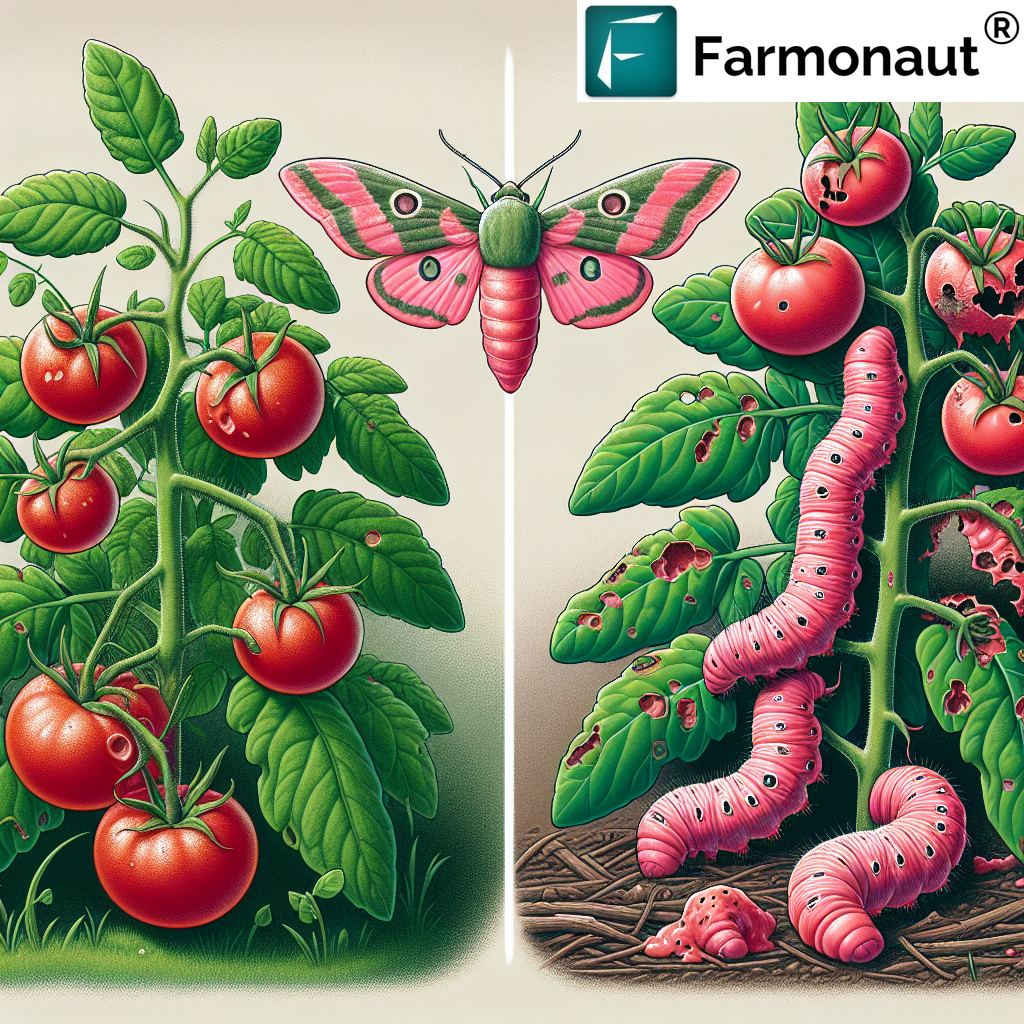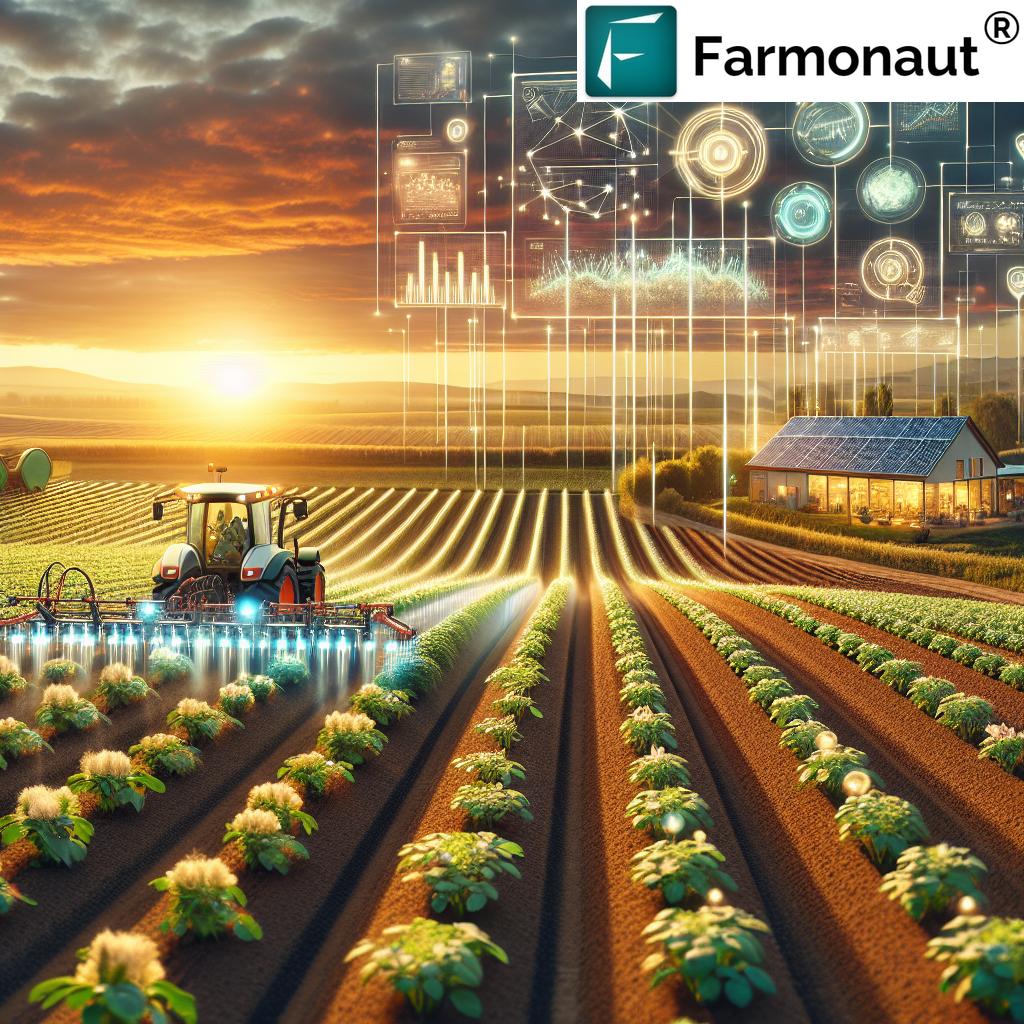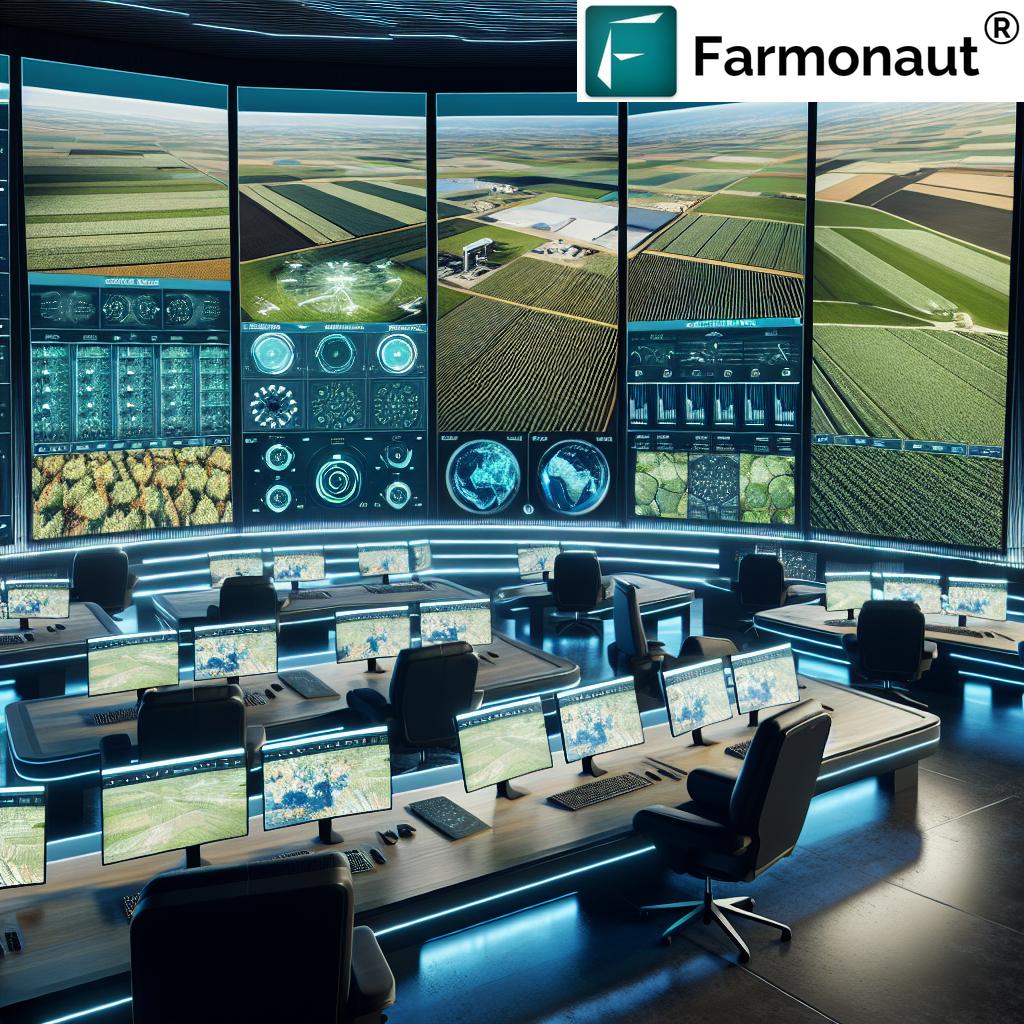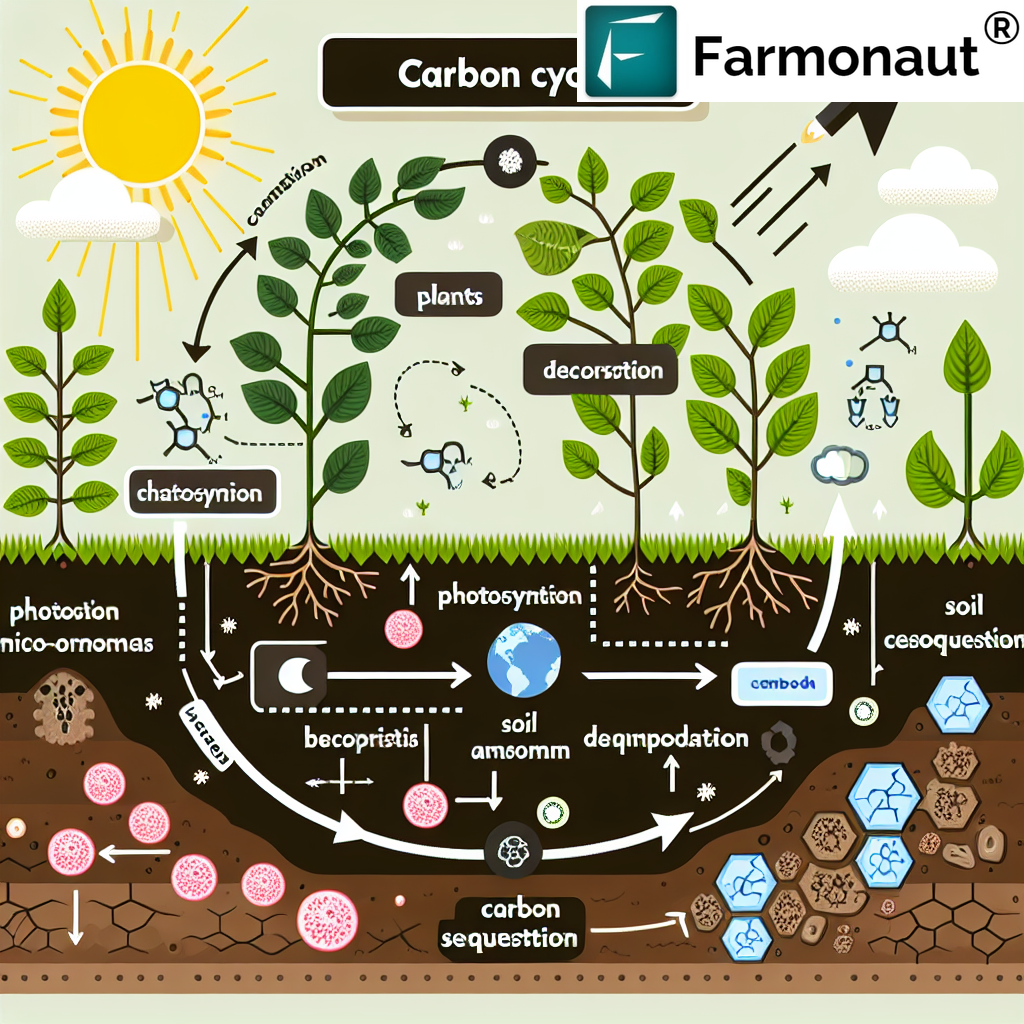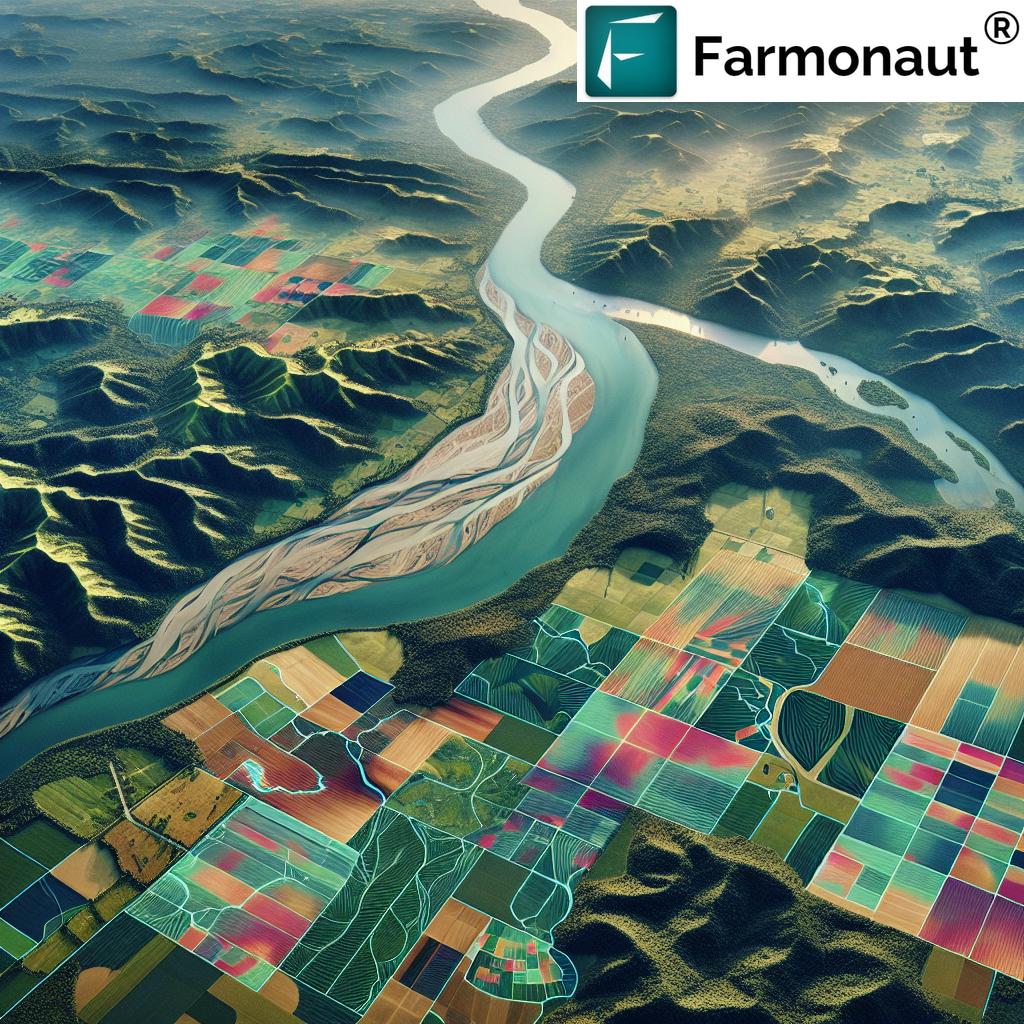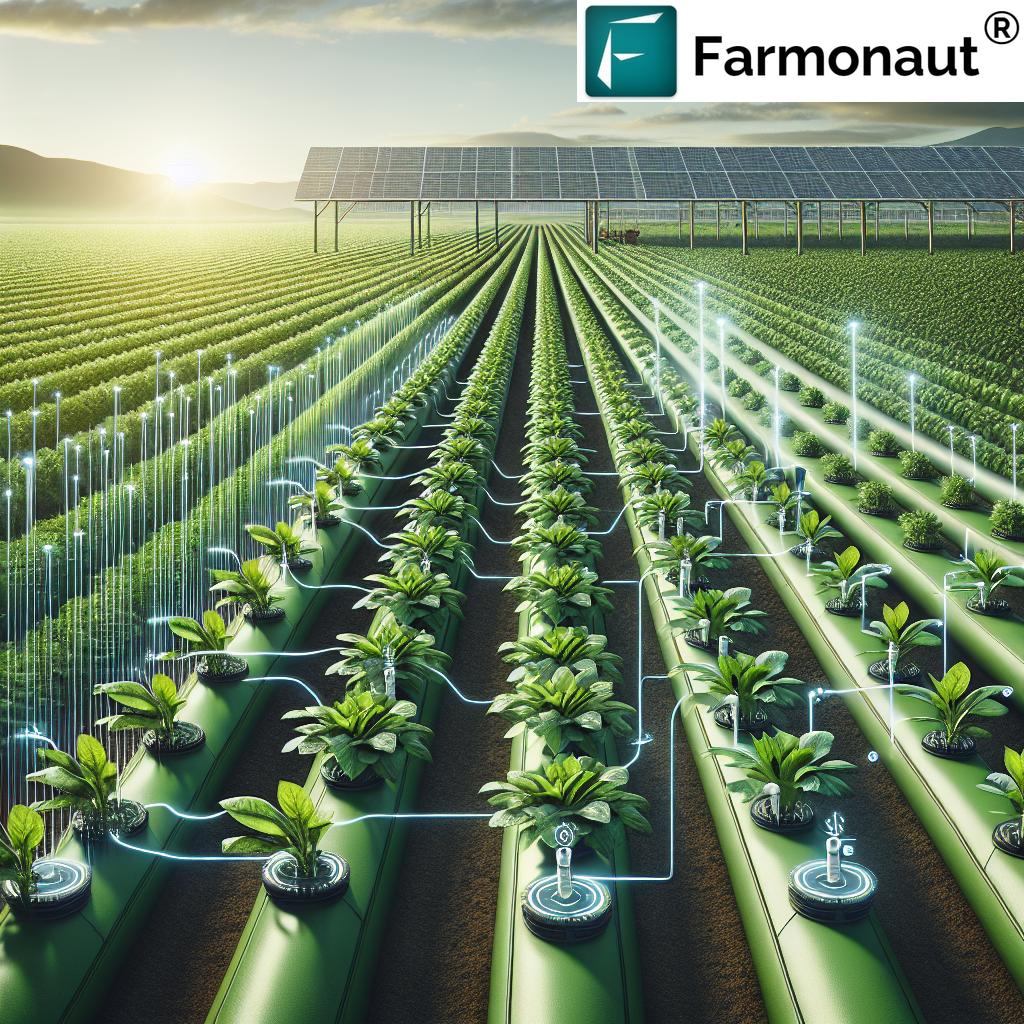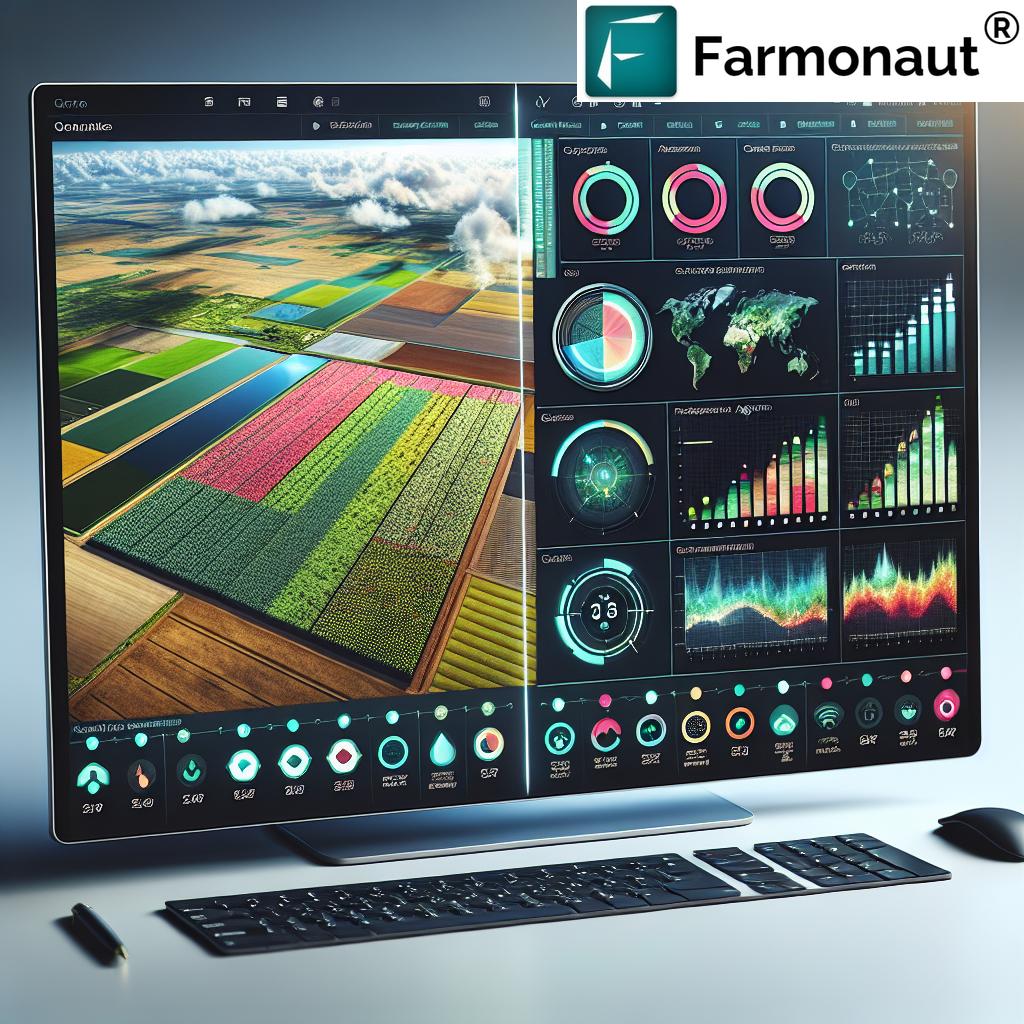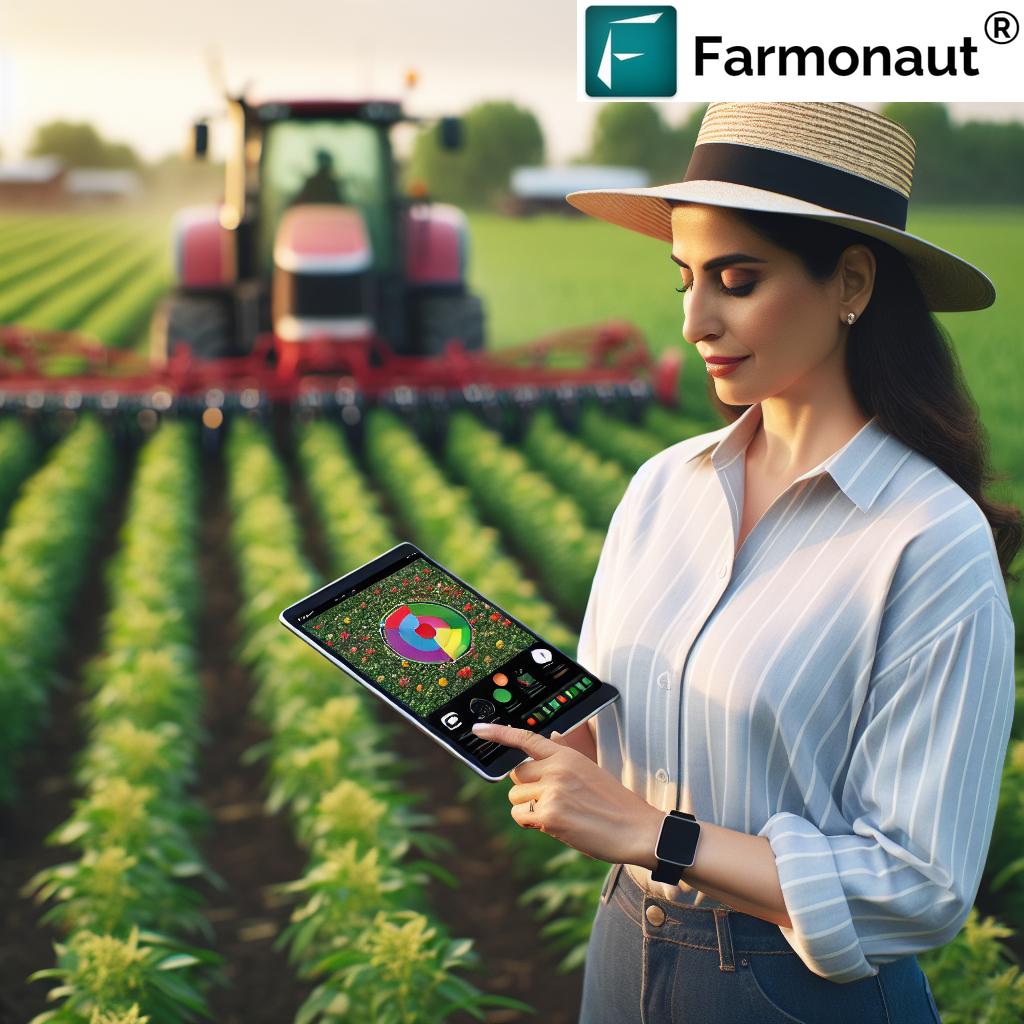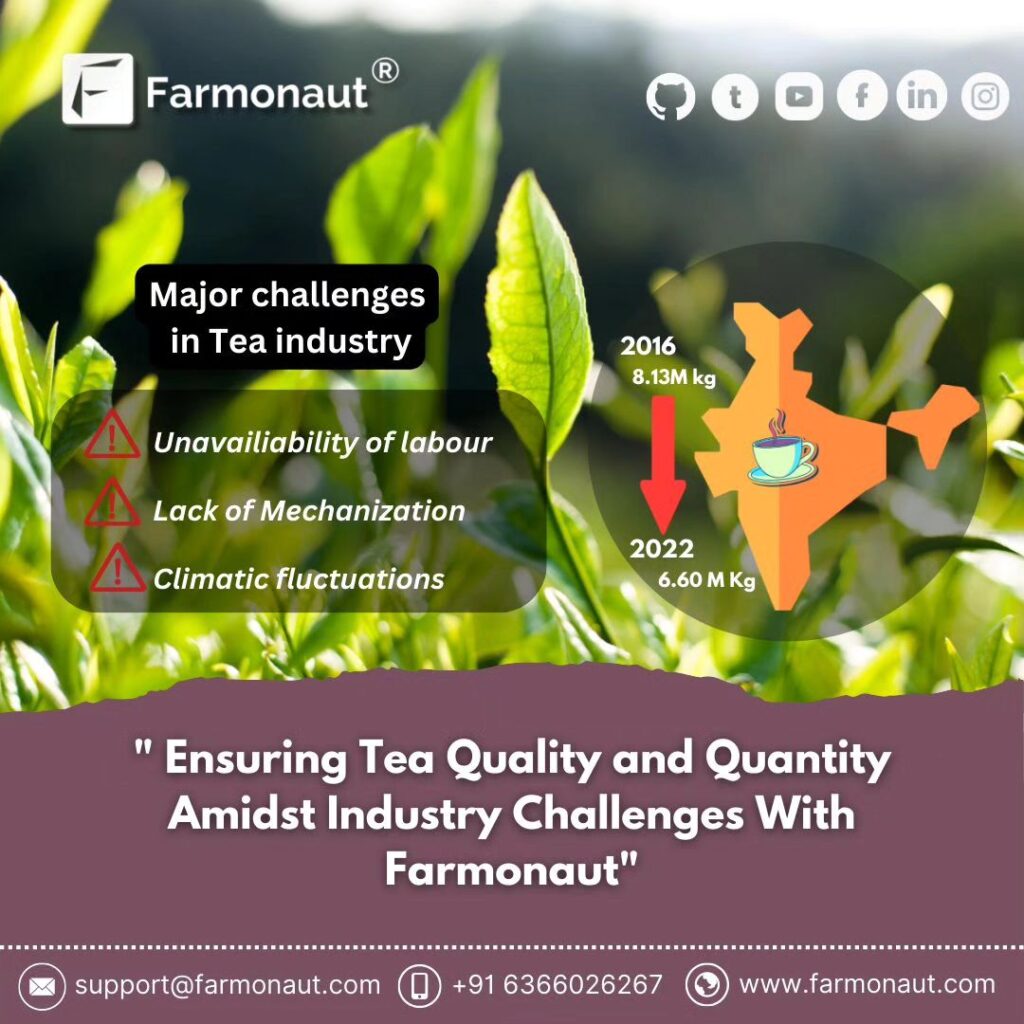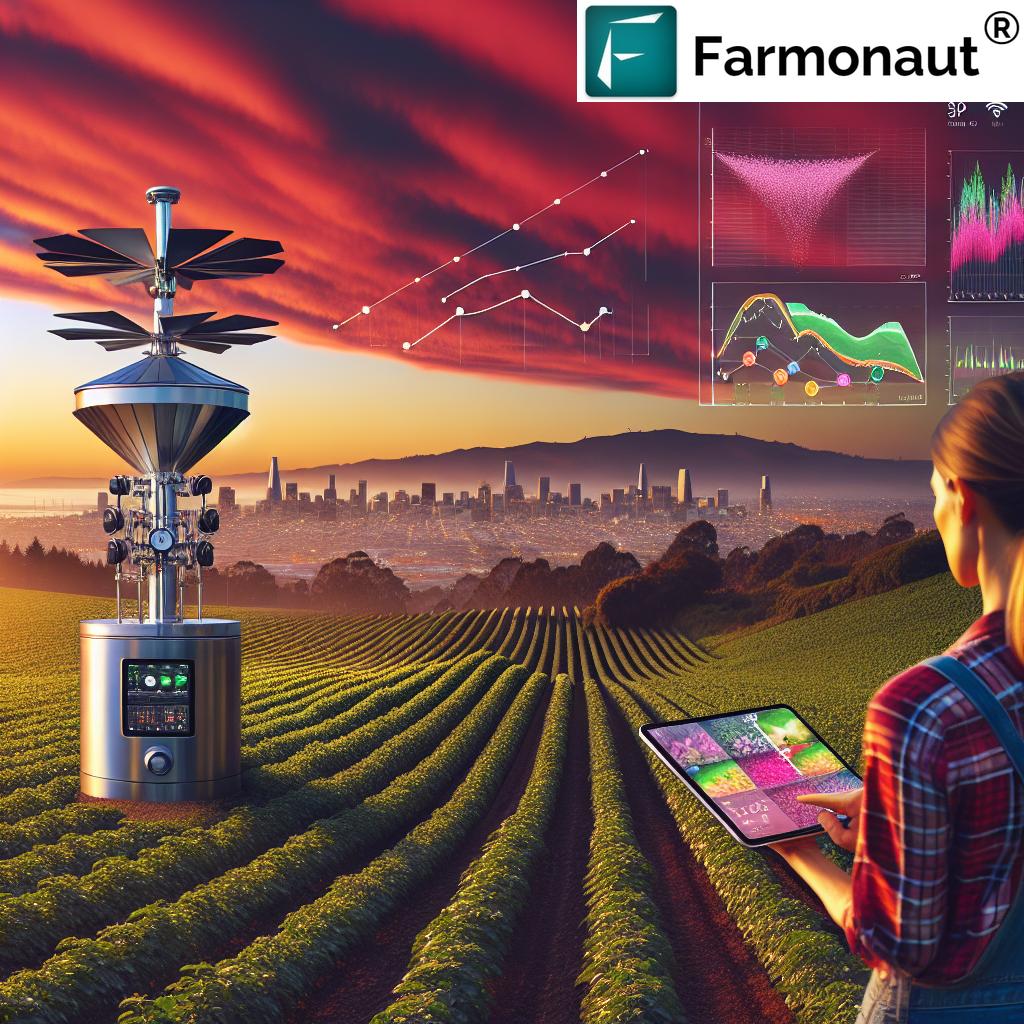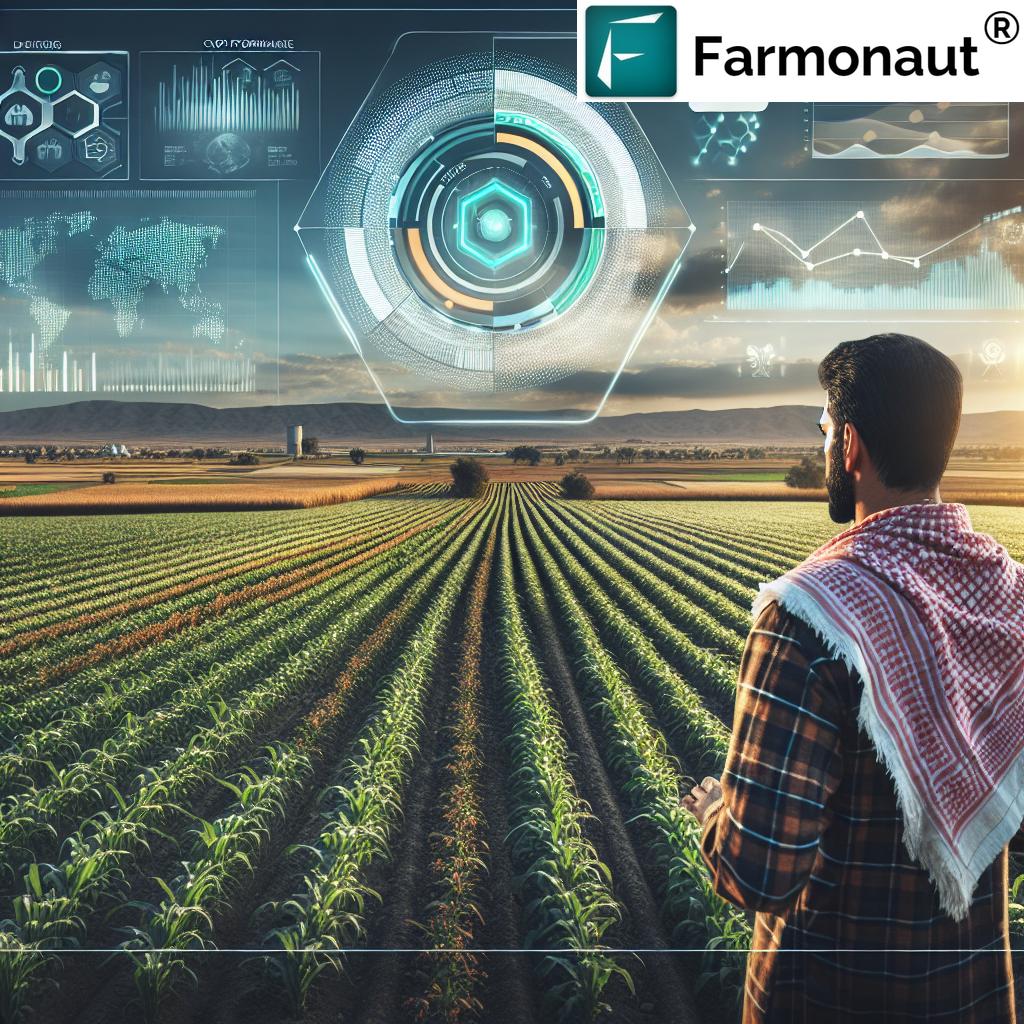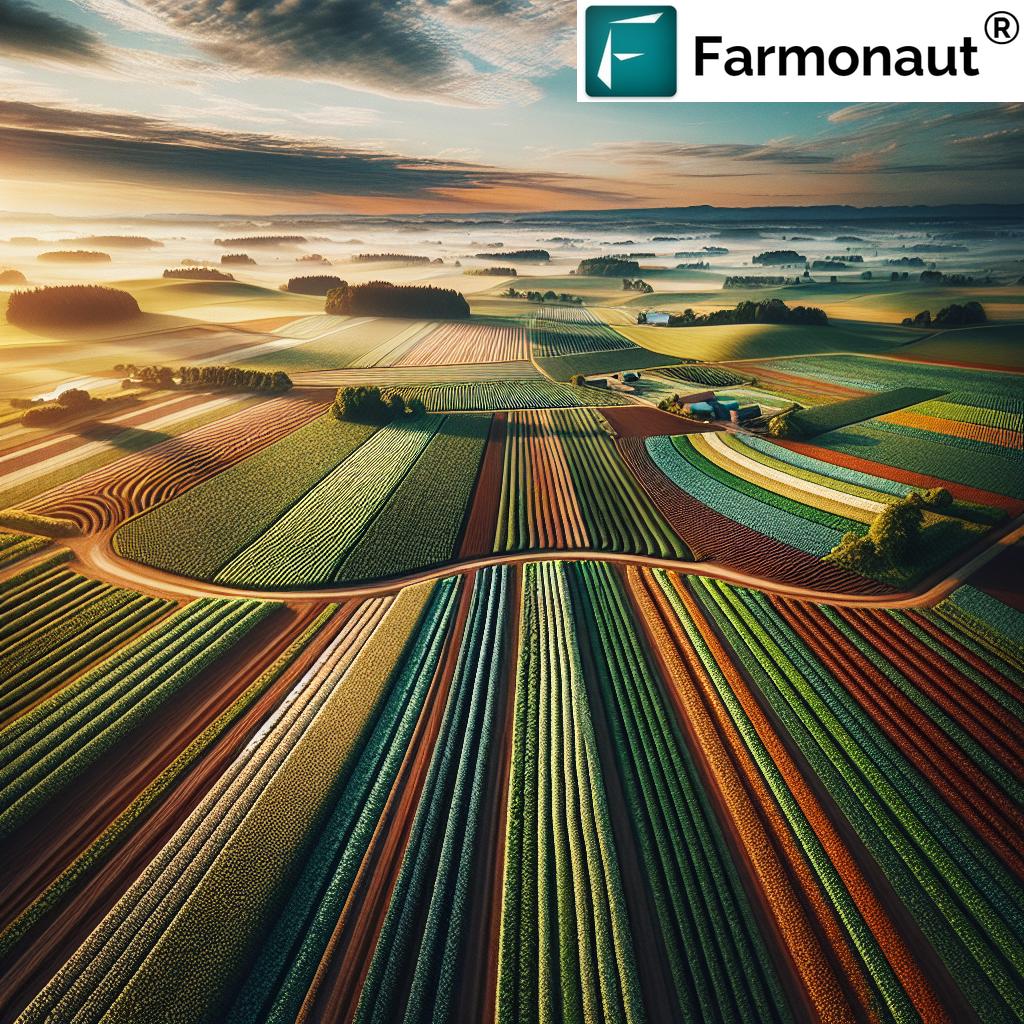Modern Farming Methods: 7 Shocking Innovations Revealed
Table of Contents
- Introduction: The Evolution of Modern Farming Methods
- Trivia
- 1. Precision Agriculture: Data-Driven Farming
- 2. Autonomous Machinery: Revolution on the Field
- 3. Biotechnology & Genetically Modified Crops: Engineering the Future
- 4. Soil Health Management: Building Resilient Foundations
- 5. Controlled-Environment Agriculture: Growth Beyond Fields
- 6. AI & Machine Learning: Cultivating Smart Farms
- 7. Regenerative & Sustainable Agriculture: A Return to Nature
- Comparison Table: Modern Farming Innovations
- Farmonaut’s Vision: Making Modern Methods Accessible
- FAQs: Modern Farming Methods
- Conclusion: Shaping the Future of Agriculture
Did You Know?
“Precision agriculture can increase crop yields by up to 20% using data-driven techniques and advanced machinery.”
Introduction: The Evolution of Modern Farming Methods
The landscape of agriculture is transforming at an unprecedented pace as we embrace modern farming methods. Innovations that once seemed distant or theoretical are now reshaping how we plant, grow, manage, and harvest our crops. These technologies not only boost productivity and efficiency, but also reinforce the sustainability and health of our farming ecosystems.
In this comprehensive overview, we will dive deep into seven truly stunning advancements, including precision agriculture, autonomous machinery, biotechnology, soil health management, controlled-environment agriculture, integration of AI and machine learning, and regenerative agriculture techniques. Our journey will show how these innovations collectively propel contemporary farming toward a future that is not just high-yielding, but responsible and resilient.
Whether you are a farmer, agribusiness professional, policymaker, or someone passionate about agricultural technology advancements, this guide offers detailed insights, expert analysis, and practical examples to empower your understanding.
1. Precision Agriculture: Data-Driven Farming
Precision agriculture epitomizes the fusion of technology and innovation in today’s farming. By harnessing satellite data, GPS tools, remote sensing, and real-time analytics, we can now monitor and manage our fields at an unprecedented level of detail.
- Field Variability: We use sensors and drones to scan for differences in soil moisture, nutrients, and crop health across entire fields.
- GPS-guided Equipment: Modern tractors and planters ensure seeds are sown at precise depths and optimal spacing, maximizing germination rates and yields.
- Data-Driven Inputs: With actionable insights from tools like Farmonaut’s satellite imagery, we can fine-tune the application of water, fertilizers, and pesticides, reducing waste and resource use.
Farmonaut’s web and mobile platform empowers farmers worldwide to access affordable, high-resolution crop health maps, NDVI indices, and soil moisture data — all without the need for expensive in-field hardware. These real-time views enable timely interventions, helping us optimize crop management and ensure sustainable agriculture practices.
- API Access: Developers and agri-businesses can directly integrate satellite and weather data into their systems via the Farmonaut API (see API Developer Docs for details).
With precision agriculture, we are truly ushering in a new era of resource efficiency and environmental stewardship.
2. Autonomous Machinery: Revolution on the Field
The rise of autonomous machinery is transforming labor-intensive tasks and redefining how we approach farming operations. Imagine fields where robotic systems and AI-enabled tractors work efficiently around the clock with minimal human input.
- Advanced Capabilities: These systems can perform planting, weeding, fertilization, and harvesting with high accuracy. GPS integration ensures operations occur at optimal rows and depths.
- Productivity Gains: By deploying autonomous tractors, we minimize labor costs and optimize resource application while increasing field output.
With digital fleet management tools from Farmonaut’s Fleet & Resource Management offering, agribusinesses and cooperatives can track machinery location, fuel use, route efficiency, and schedule maintenance remotely. This dramatically boosts operational efficiency and reduces downtime.
- Safety and Scaling: Automated monitoring helps ensure machine safety in large-scale environments.
Adoption of autonomous machinery supports the shift toward precision crop management — allowing us to react proactively to field and weather conditions.
3. Biotechnology & Genetically Modified Crops: Engineering the Future
Biotechnology has created radical opportunities to develop genetically modified (GM) crops that are resistant to pests, diseases, and can tolerate drought or salinity — all while improving nutritional value.
- Reduced Inputs: Pest- and disease-resistant varieties lower the need for chemical pesticides and fertilizers, benefitting both the environment and farm budgets.
- Drought Tolerance: GM crops with engineered drought tolerance ensure stable yields during climate change-induced weather extremes, directly addressing food security challenges.
- Improved Nutrition: Some innovations target enhanced micronutrient content, supporting better public health globally.
However, we must also carefully weigh ecological and ethical concerns when integrating biotechnological advances. Continuous research and robust regulation remain vital for safe adoption of modern farming methods.
For traceability and transparency, Farmonaut’s Blockchain-based Traceability solutions allow agricultural businesses to track crop origins, inputs, and production stages — building trust with consumers and meeting regulatory requirements.
4. Soil Health Management: Building Resilient Foundations
Soil health management is at the heart of sustainable agriculture. By prioritizing soil structure, fertility, and biodiversity, we ensure long-term productivity across generations.
- No-till farming: We plant crops directly into residue-laden soils, minimizing disturbance, preserving carbon, and reducing erosion.
- Crop Rotation & Cover Crops: Alternating crop types and incorporating organic cover helps restore nutrients and maintain soil resilience.
- Incorporating Agroforestry: Integrating trees and perennial plants alongside crops (known as agroforestry) improves soil fertility, provides habitat, and can sequester carbon — all while offering additional farm income streams.
- Digital Monitoring: With Farmonaut’s crop and soil health mapping, farmers get continual, real-time insights on moisture and organic carbon, enabling targeted interventions to address problems before they escalate.
Healthy soil supports robust crops, reduces input requirements, and supports the sustainability journey for all modern farmers.
Sustainable Fact
“Sustainable farming methods have reduced soil erosion rates by nearly 50% in some regions since 2010.”
5. Controlled-Environment Agriculture (CEA): Growth Beyond Fields
As cities expand and arable land shrinks, controlled-environment agriculture (CEA) enables us to grow crops anywhere — even in the heart of urban environments.
- Hydroponics & Aeroponics: Plants thrive without soil, using nutrient-rich water or mist to optimize growth — slashing water usage by up to 90% and enabling precise nutrient control.
- Vertical Farming: Food production multiplies as crops are stacked in high-tech indoor farms. Automation, multispectral lighting, and climate controls yield predictable results year-round.
- Climate Resilience: These enclosed systems buffer crops against extreme weather, pests, and contaminants, guaranteeing quality and supply stability.
Downside: Energy requirements (for lighting, HVAC, and water systems) can be high, so increasing the use of renewable energy sources is crucial for the sustainability of CEA.
Adoption Example: In urban India, vertical farms and digital hydroponic setups are now a growing part of fresh produce supply chains — a clear sign of modern farming’s adaptability.
6. Integration of AI & Machine Learning: Cultivating Smart Farms
The integration of artificial intelligence (AI) and machine learning is fundamentally changing how we interpret agricultural data, plan operations, and manage field variability.
- Predictive Insights: AI algorithms digest weather forecasts, multispectral satellite images, and field sensor data to predict disease outbreaks, irrigation needs, and optimal planting windows.
- Learning Over Time: Machine learning models refine themselves by consuming more data each season, continually improving their accuracy and value to farmers and agribusinesses.
- Personalized Advisory: Farmonaut’s Jeevn AI Advisory System delivers real-time weather, crop management, and pest prevention recommendations straight to farmer mobile devices — a gamechanger for accessibility and decision support.
These advanced technologies are democratizing expert knowledge and empowering us to optimize inputs, reduce waste, and maximize yields across various farm sizes and field types.
7. Regenerative & Sustainable Agriculture: A Return to Nature
Regenerative agriculture techniques take sustainable agriculture practices a major step further. Rather than simply minimizing harm, our goal is to restore and enhance ecosystems for the future.
- Soil Restoration: Practices like composting, reduced tillage, and biological amendments rebuild soil fertility and increase carbon sequestration.
- Agroforestry: Integrating perennial trees into cropland reduces erosion, provides animal habitats, buffers against wind, and improves microclimates.
- Reduced Chemical Use: By limiting synthetic fertilizers and pesticides, we protect beneficial organisms and water sources.
- Carbon Footprinting: Farmonaut’s Carbon Footprinting tools help producers track and actively reduce their farm’s impact on the planet — essential for climate stewardship and regulatory compliance.
- Incentives for Transition: Financial and technical support, including access to crop loans and insurance (see Farmonaut’s crop loan and insurance verification), can help farmers adopt regenerative methods with confidence.
Regenerative agriculture unlocks true sustainability — rebuilding what has been lost and future-proofing our global food system against climate shocks and threats.
Comparison Table: Modern Farming Innovations
| Innovation Name | Description | Estimated Yield Increase (%) | Soil Health Benefit (1–5) | Resource Efficiency (Water/Fertilizer Use Reduction %) |
Sustainability Score (1–10) | Adoption Rate (Estimated %) |
|---|---|---|---|---|---|---|
| Precision Agriculture | GPS, sensors, and data analytics for input optimization and field variability management | 10–20 | 4 | 15–30 | 8 | 30–45 |
| Autonomous Machinery | AI-driven self-operating tractors and robotics for automation of farm tasks | 8–15 | 3 | 20 | 7 | 10–20 |
| Biotechnology & GM Crops | Genetic modification for pest, disease, and climate resilience plus nutritional improvement | 10–25 | 2 | 20 | 6 | 25–40 |
| Soil Health Management | No-till, crop rotation, and organic amendments to improve structure and fertility | 7–12 | 5 | 20–35 | 9 | 30–60 |
| Controlled-Environment Agriculture | Hydroponics, aeroponics, and vertical farming for highly efficient urban production | 15–35 | 4 | 30–90 | 8 | 5–15 |
| AI & Machine Learning | Real-time data analytics, predictive modeling, and digital advisory tools | 10–18 | 4 | 10–28 | 8 | 15–40 |
| Regenerative Agriculture | Composting, agroforestry, and chemical reduction for restoring soil and ecosystem health | 8–15 | 5 | 30–50 | 10 | 10–22 |
Farmonaut’s Vision: Making Modern Farming Methods Accessible
At the heart of many innovative farming practices, Farmonaut enables all our stakeholders — from smallholder farmers in India to large-scale agribusinesses abroad — to benefit from advanced technology without excessive costs or technical barriers.
Key Features Supporting Modern Agriculture:
- Real-time Crop & Soil Health Monitoring: Using satellite-based NDVI and other indices, we can track crop condition and address issues before they threaten yields.
- Jeevn AI Advisory: Delivers evidence-based, personalized support on mobile devices for fertilization, irrigation, pest prevention, and weather predictions.
- Blockchain Traceability: Ensures transparency, trust, and quality assurance throughout the agri–supply chain.
- Fleet and Resource Management: (Learn more) Optimize machinery use, routes, and reduce operational costs.
- Carbon Footprinting and Regenerative Tracking: (Discover more) Actively monitor, manage, and communicate sustainability performance to meet market, consumer, and regulatory demands.
All Farmonaut solutions are available via web and mobile apps, making precision agriculture as accessible as possible, even for regions with limited resources.
Are you managing a large plantation, research organization, or government project? Farmonaut’s Agro-Admin platform brings powerful, scalable solutions for large-scale farm management.
Ready to take the next step in precision crop, soil, and resource management? Register or login to Farmonaut now, or access our API for seamless integration into your agri operations.
FAQs: Modern Farming Methods
- What are the most important modern farming methods?
- The seven key approaches are: precision agriculture, use of autonomous machinery, biotechnology and GM crops, soil health management, controlled-environment agriculture, AI & machine learning tools, and regenerative techniques.
- How does precision agriculture benefit farmers?
- Precision agriculture empowers farmers to apply inputs (like water, fertilizers, pesticides) exactly where, when, and as much as needed, resulting in higher yields, lower costs, and reduced environmental impact.
- Are these modern techniques affordable for small-scale farmers?
- Yes, digital platforms like Farmonaut make advanced tools available without expensive on-field devices. Farmonaut’s satellite-based subscriptions and free mobile app deliver powerful insights affordable for all farm sizes.
- What challenges exist in adopting modern farming innovations?
- Key challenges include initial investment, need for learning and digital skills, connectivity or data access constraints, and sometimes regulatory or market barriers (such as for GM crops).
- How can I measure and improve my farm’s carbon footprint?
- Leverage Farmonaut’s Carbon Footprinting tool to identify emission sources, monitor seasonal changes, and implement more sustainable practices.
- How do I get started with Farmonaut’s services?
- Simply create an account on Farmonaut’s web or mobile apps, choose a subscription plan, and start uploading or analyzing your fields.
Conclusion: Shaping the Future of Agriculture
As we look toward the future, modern farming methods represent our best hope not only for increasing crop yields and efficiency, but for promoting true sustainability and environmental stewardship in agriculture. With precision crop management, smart use of resources, and new genetic, robotic, and digital tools at our fingertips, we can build a food system that delivers for both people and the planet.
Farmonaut continues to lead the way, offering accessible, affordable, and highly advanced farm management solutions — bridging the gap between cutting-edge technology and real-world farming. Together, let’s embrace the innovations shaping agriculture’s brightest, most sustainable future.
Start your own journey with modern farming by joining Farmonaut today.


